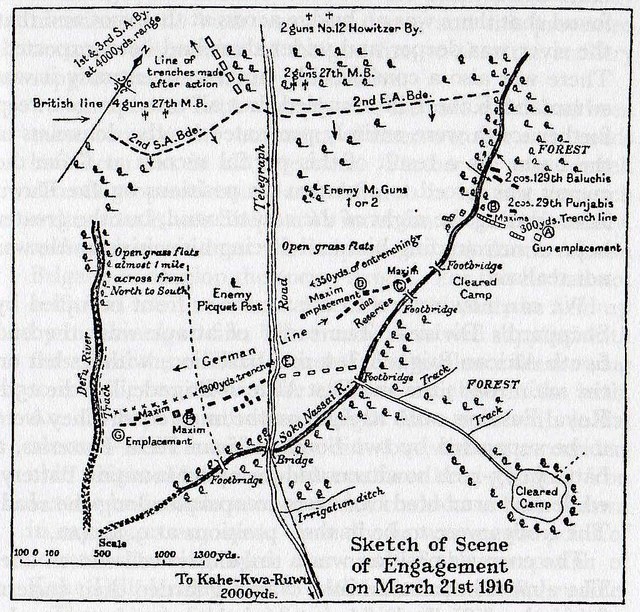Harry Bowes-Scott was the only son of Henry Bowes-Scott and Alice Henrietta Rodney. He was born in Chelsea on 15th May 1887 and admitted to Ashburnham in September 1901. After he left the school in Easter 1903 he went to Calcutta, where he worked as a civil engineer for the new partnership Gillanders, Arbuthnot & Co.
There was a fairly strong Old Westminster community in India in the early 20th Century. There were about 80 OWW known or believed to be in India, of whom at least three quarters were either military men or civil servants. There was one OW, Sir Francis Maclean, Chief Justice of Bengal, who hosted reunion dinners every few years. Harry attended several of these dinners and after one of these occasions in December 1912, he wrote a short note to The Elizabethan saying that “although the attendance was small the dinner went off successfully and the usual toasts were as enthusiastically drunk as ever”.
On the 7th August 1915, Harry joined the Indian Army as a 2nd Lieutenant in the Infantry Reserve of Officers. After nearly two months, he was attached to the 29th Punjabis. By March 1916, he was in German East Africa (now Tanzania).
On the morning of the 21st March, some members of the South African Horse had braved the deep and fast-flowing river Pangani and seized Kahe Hill. The Germans attacked the hill heavily in retaliation. The 2nd East African Brigade, including the 29th Punjabis, attempted to cross the Soko-Nissai River with its strong current and crocodile-infested waters. But an error in intelligence meant that the commander, S.H. Sheppard, had not realised that that river formed the main German defensive position.
Under heavy machine gun fire, Sheppard sent two companies of the 29th Punjabis across the river. Lieutenant Harry George Rodney Bowes-Scott and nine other people were killed and a further sixty-six were wounded.
